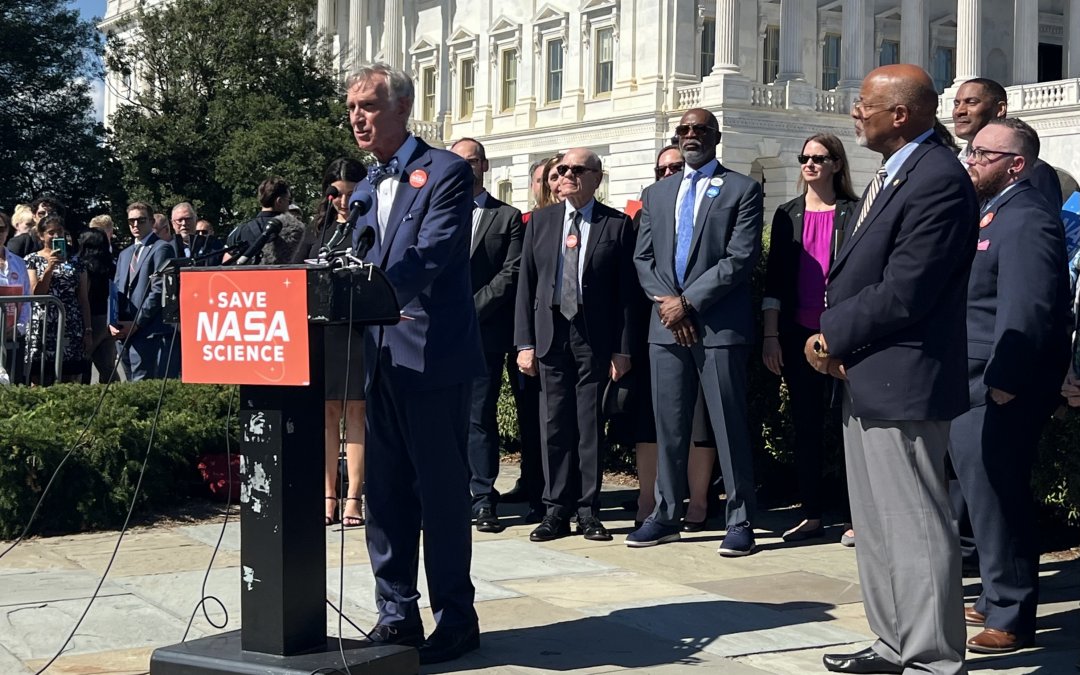WASHINGTON – Bill Nye, the “Science Guy,” called for Congress to reject the White House’s proposed cuts to NASA’s funding.
Nye is a long-time television personality and CEO of the Planetary Society, a nonprofit organization that promotes space exploration. He gathered with around 300 advocates at the U.S. Capitol on Monday as part of the society’s annual Day of Action to maintain NASA’s budget.
The proposed White House budget for the 2025-2026 fiscal year, which began Oct. 1, slashes NASA’s funding by 24%, from around $24.8 billion to $18.8 billion.
Science research funding, which includes Earth science, planetary science and astrophysics, would be hardest hit by an unprecedented 47% cut.
In a bipartisan rejection of these proposals, both the House and Senate budget drafts leave NASA’s overall funding untouched at the current $24.8 billion.
Eight representatives also signed a letter to the House Committee on Appropriations in September. Signees represented both parties, including Rep. Don Bacon (R-Neb.) and Rep. Judy Chu (D-Calif.).
But Congress is far from finalizing a budget. And amid a government shutdown that has furloughed more than 15,000 of NASA’s 18,000 workers, the Trump administration’s budget recommendation could put agency funding on the chopping block.
Nye said most people do not consider the economic benefits of NASA’s research. Every dollar spent, he said, returns $3 to the U.S. economy.
NASA’s projects generated more than $75.6 billion and 300,000 jobs nationwide in the 2023-2024 fiscal year, according to its most recent report.
Indeed, Nye said most modern technology would not exist without research in space and science.
“The reason we’re able to have this recording on your phone is because of investments in space,” Nye told Medill News Service.
These innovations, along with numerous space missions, have helped develop NASA into a global brand, he said.
But the Trump administration’s proposed budget terminates what it calls “unaffordable” projects like Mars Sample Return, a mission that aims to bring samples from Mars back to Earth.
This would cause the U.S. to fall behind China in space exploration, Rep. Glenn Ivey (D-Md.) said.
“China is doing the exact opposite,” Ivey told Medill News Service. “They’re pushing money and engineers and talent towards these sorts of research fields and giving them every opportunity to thrive. We should be doing the same thing.”
Ivey said the cuts would also risk NASA’s early career resources. These include fellowships that fund graduate students like Columbia University Ph.D. student Kalima Bukenya.
Bukenya, a former NASA intern, told Medill News Service she visited Washington, D.C. for the first time to attend the Day of Action.
“My future is invested in just being able to work for NASA,” Bukenya said. “To have these cuts, I don’t know what I’m going to do next.”

